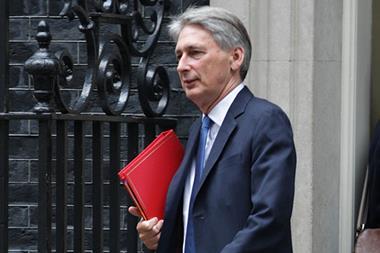Philip Hammond may not have the same propensity for rabbit-conjuring as his predecessor did, but his approach to business rates does have a whiff of March hare madness about it.

Business has, justly, been calling for radical rates reform for years now and with April’s revaluation looming on the horizon there has been a further bout of wailing and gnashing of teeth. Many will therefore be disheartened, if not distressed, that yet again a viable long-term solution to the rates conundrum has been kicked firmly into the long grass by the government.
The government has now responded to its consultation on the new ‘check, challenge, appeal’ system and has backed down on some issues, including the proposal to give a de facto margin of error to the Valuation Office Agency in calculating assessments. However, businesses now have a further period of uncertainty while the government again consults on a proper long-term solution.
The Budget’s stop-gap measures that the chancellor hopes will keep businesses at bay are of course welcome in principle. Pubs up and down the country have felt the squeeze recently and the £1,000 discount for around 90% of operators will be a real help.
What is needed is a commitment from government to increase transparency
Furthermore, the assurances that those businesses that may no longer benefit from small business rates relief will only see a rise of £50 per month will steady the resolve of those who have been trembling ahead of April’s revaluation.

These actions, including the £300m fund for local councils to offer discretionary relief for hard-hit cases, sound good in principle but do little to tackle the underlying issue that pervades the rates system and creates a real burden for ratepayers.
What is needed is a significant, meaningful commitment from government to increase transparency and improve the flow of information from the Valuation Office Agency, which remains opaque, unhelpful and at times nonsensical.
Essentially business rates are just a tax and, as taxpayers, businesses justifiably want to know that what they are paying is fair and accurate. Root-and-branch reform is desperately needed to fix a system that has short-changed too many for far too long.






























No comments yet